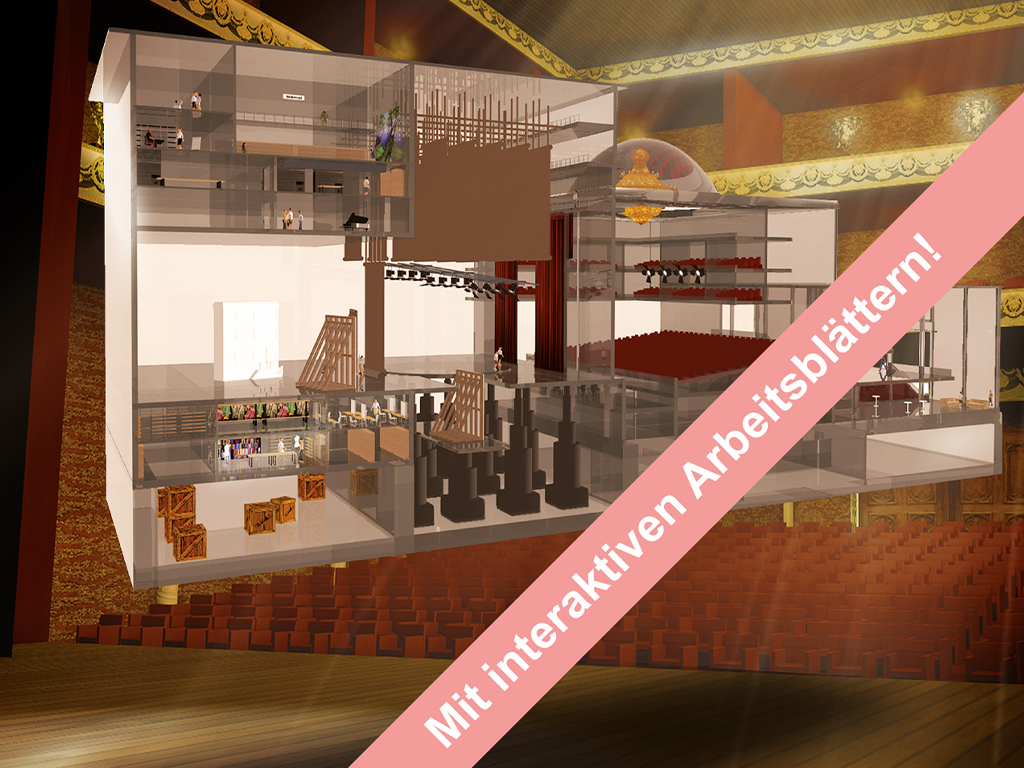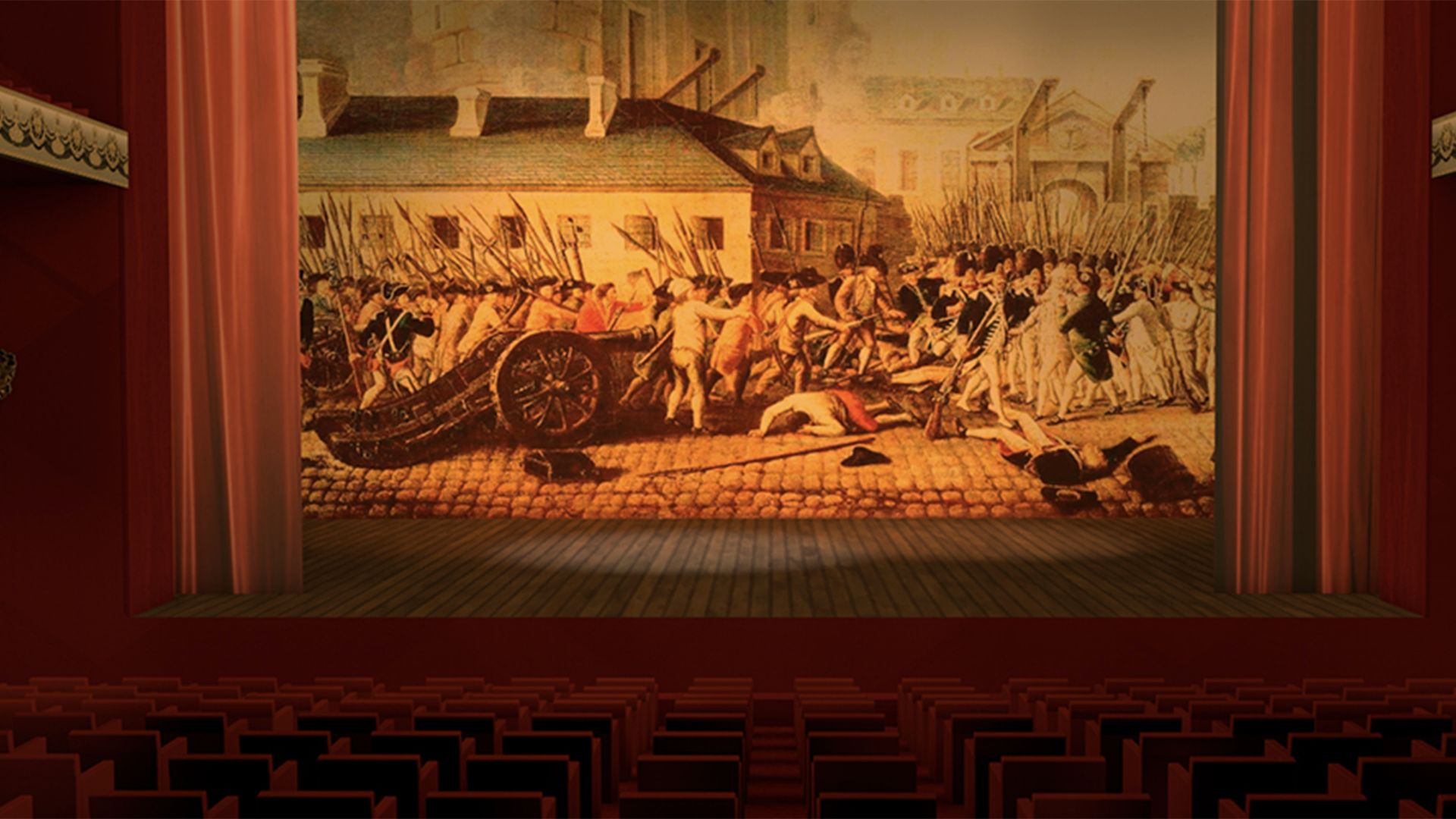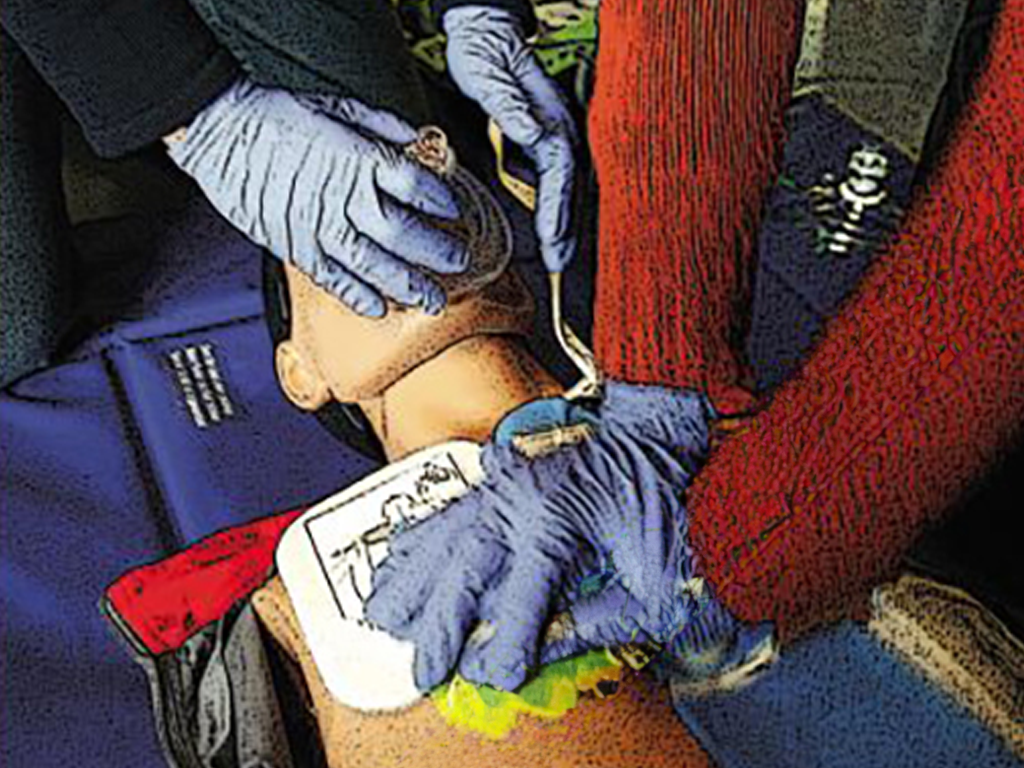 Music
Music


4667662 / 5558921
Opera
Planning, Staging, Performance
As soon as the audience has taken their seats, the conductor enters the orchestra pit. When he lifts the baton, the magic ritual of enchantment through music, play and light in an illusory world, which is to true nonetheless, begins. But what is opera, anyway? Let us dare a look behind the scenes! This film presents the institution and the artistic creation of an opera. The pupils learn about the structure of a traditional opera house. They get to know how an opera production is planned and prepared. They see how many people contribute to an opera production from the planning to the first night. What jobs and what manual skills are behind a production? How do make-up artists and costume designers work? How many rehearsals are required? All these questions and a lot more are answered by the film. And if the pupils do attend an opera performance, they will perhaps think of the many people and skills that were needed to make this evening a success. Together with the extensive accompanying material the didactic DVD is perfectly suited for various uses in the classroom.
Play trailer

Curriculum-centred and oriented towards educational standards
Matching
Resuscitation
It can happen to anyone – of any age, in any place, at any time. Sudden cardiac arrest may quickly prove fatal. Immediate action is called for! Just remember: Check Call Press Anyone can do it. You can't do anything wrong!
Blogging
The weblog or blog, for short, as a medium is not much older than this century. Blogs came into being in the World Wide Web as ’messages from below’, as web pages from web creators who wanted to share their view of the world with the world. They are short notes, long texts, pictures, videos, which are posted loosely and at random intervals to the world for an undefined public.
Air Traffic
Being able to fly has been a dream of humanity from time immemorial. But it does not even date back a century that people actually started being able to travel through the air. Since the 1960s, the number of flight passengers has been constantly increasing. Thus, the airspace is no longer dominated by birds but by man-made flying objects.









